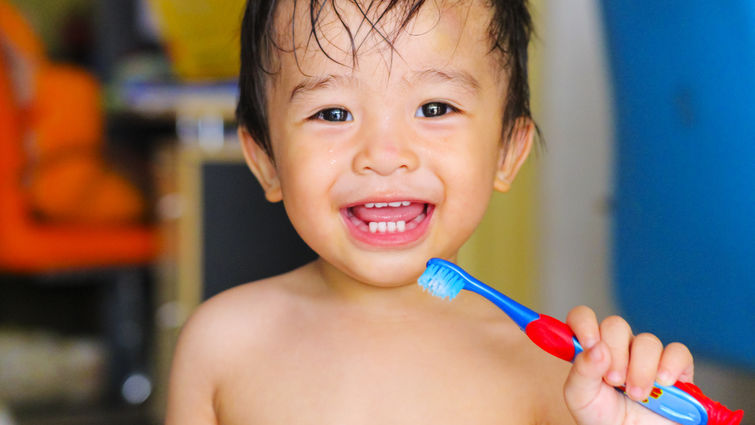
Kissing can cause caries — also known as cavities — and breastfeeding can too? There are a myriad of questions parents ask when they are shocked to learn that their children’s oral health is a little more complicated than brushing and flossing. Yet, according to the Centers for Disease Control and Prevention, children ages five to 11 have at least one untreated tooth decay. That is why a pediatric dentist and dental hygienist partner to provide five surprising facts they wish parents knew.
Jung-Wei Chen, DDS, MS PhD, director of pediatric dentistry at Loma Linda School of Dentistry, says she is still surprised to learn how little parents know about some of the big causes of caries and gingivitis in children and how much power parents have to change it.
“I always hear parents boast about a child who can brush their teeth but not write their name,” Chen says. “What I wish they knew is that their kid is actually not brushing their teeth in a way that can reach to the level of “plaque free” clean in their mouth.”
Here are the five insights both Chen and dental hygienist Danielle Ellington hope parents keep in their mind when they think of their children’s teeth.
- Drooling and hanging tongue can cause caries, gingivitis and more. Drool does not always mean your kid is teething. Chen says if your child’s teeth are fully erupted and there is still drool, that means the toddler may have mouth breathing, in which the muscles around the mouth are weak and the tongue lays over the bottom teeth This leads to mouth breathing, which then can lead to cavities, gingivitis, high palate, malocclusion and other oral health issues. Chen says parents can train their child to close the mouth; put their tongue in the right place, behind the front top teeth, by flicking the tongue lightly .
- Breastfeeding at night can cause cavities. Once a child reaches the age of one and refined carbohydrates (such as sugar) are introduced into a child’s diet — yogurt with fruit, for example — Chen instructs mothers to not breastfeed at night. Breast milk is sweeter than formula, and once carbs are introduced, that bacteria will remain in the child’s mouth after nursing before bed and cause cavities.
- If your child cannot hold a pen and write their name, they shouldn’t brush their teeth alone without supervision. Chen says the hand motion that is used to hold a pen and write a name is up to the level of skill needed to brush teeth properly. Without it, kids will just pull and scrub instead of brushing all teeth at proper angles. So for now, brush your child’s teeth, or finish up after letting them start.
- End a meal with a fat or protein food. Ellington says to have your kiddo snack on cheese, nuts, legumes or meat at the end of a meal to avoid cavities. Anything that does not have sugar that sets the stage for the next couple of hours. If a meal ends with a sugary dessert, that sugar will coat and remain on the teeth until the next meal.
- Don’t you dare pick up the pacifier and clean it with your mouth (yep, we’ve all done it). Parents think cleaning a soother with their own mouth gets rid of the bacteria it picked up after falling on the floor. But doing so does not remove the bacteria. It actually exposes your child to both the floor bacteria and the bacteria in your mouth. This can cause caries and other dental disease, as these bacteria are communicable, meaning they can be passed from one individual to another. Instead, regularly clean soothers with soap and water.
More than anything, make sure that once it’s 6 months after the first tooth emerges or once the child reaches the age of one, you can schedule an appointment with a pediatric dentist to begin regular oral care. The Loma Linda University School of Dentistry’s Pediatric Dentistry clinic is always open to accept new patients. To schedule an appointment, please call 909-558-4689.
